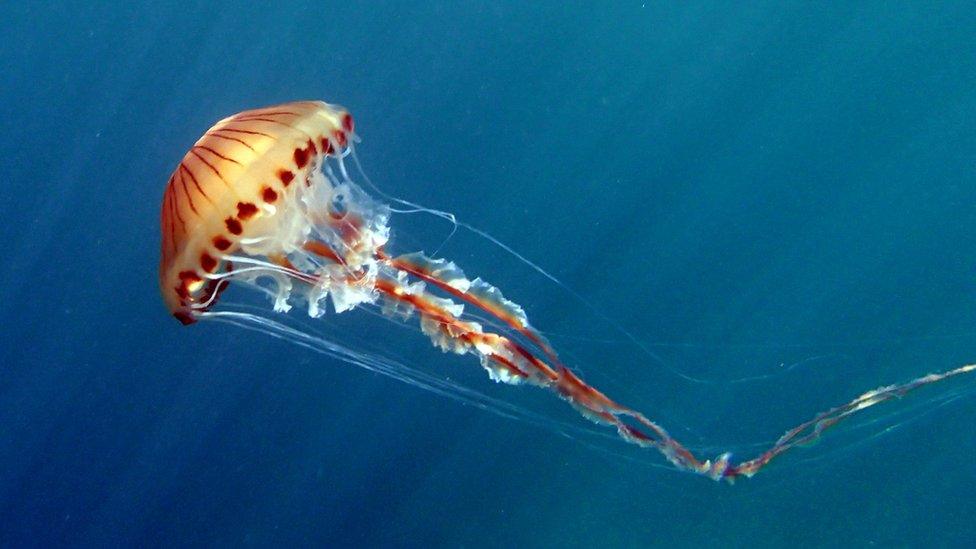Jellyfish: Hundreds wash up on Essex beaches
- Published
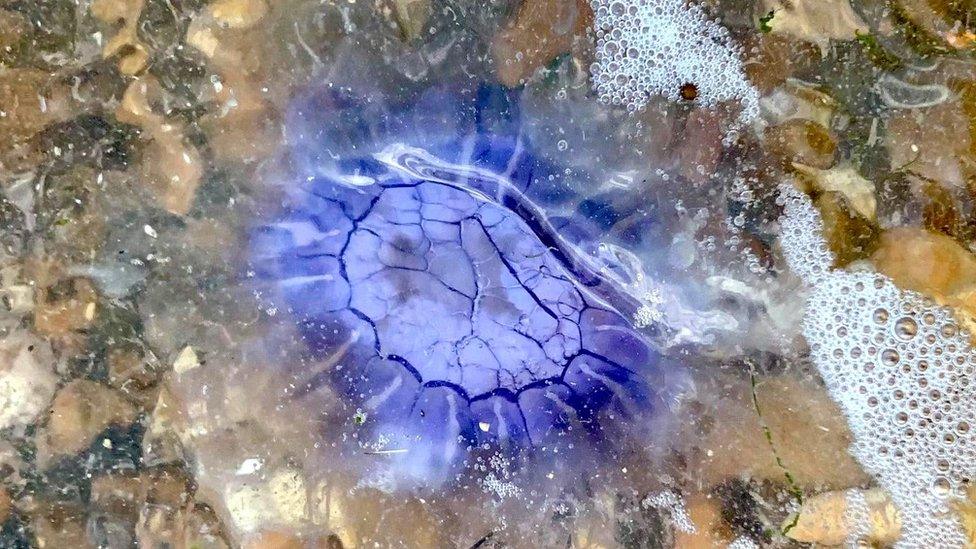
Hundreds of jellyfish were spotted along the Essex coast
Hundreds of purple and white jellyfish washed up on beaches have stung "multiple people", a police force said.
The creatures have been spotted in Southend-on-Sea, Leigh-on-Sea and Thorpe Bay in Essex.
Community group Southend Beach Care, external urged people not to touch them.
"There are large amounts of purple/white jellyfish along Southend seafront, with multiple people being stung," Essex Police said in a tweet, external.
"It has been reported that hundreds of the jellyfish have been washed up on the beach and floating in the water."
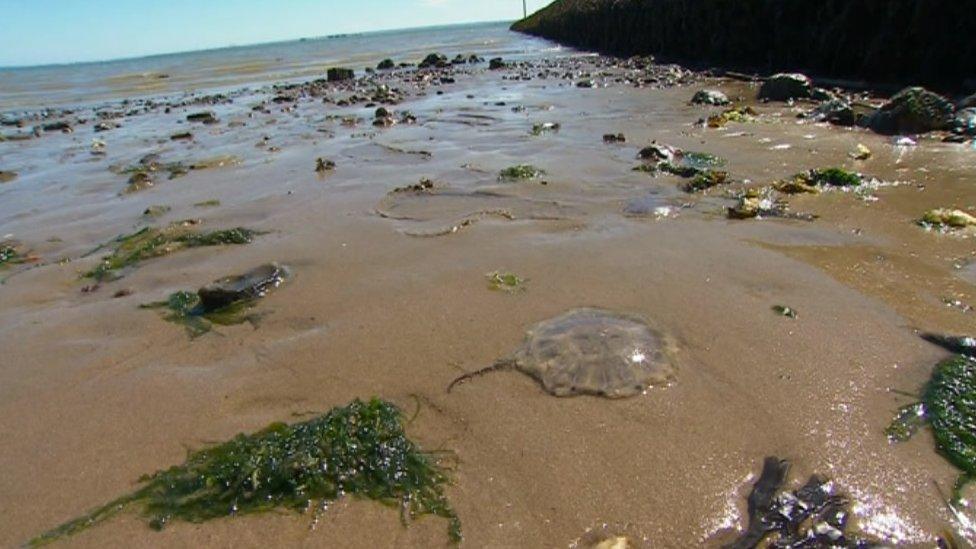
The jellyfish were found in the sea and along the beach
Derren Butler, from Westcliff-on-Sea, said he saw two recently in Shoeburyness.
"I've seen them abroad, but never in the Southend area," he said.
"I go for a daily walk on the beach, but I'm avoiding the area just to be on the safe side."
According to the Marine Biological Association, external, there are more than 200 species of jellyfish globally, with six species commonly found in British waters.
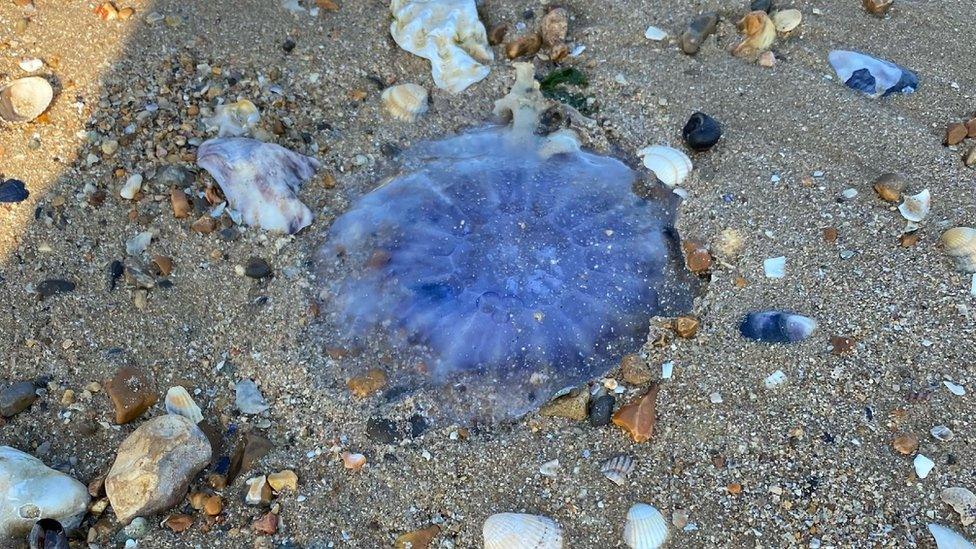
Derren Butler said he spotted them in Shoeburyness
Independent councillor Martin Terry, cabinet member for public protection, at Southend-on-Sea Borough Council, said: "The sea water along the Southend-on-Sea coastline is part of the Thames estuary and as the sea temperature increases, jellyfish are brought into the estuary by the tidal currents."
Council teams are providing information to visitors along the seafront and posting warnings on social media, he added.
"Our advice would be to be careful when in the water as jellyfish can be difficult to see, but if you do see one, avoid it."
Southend Beach Care said: "There are lots of jellyfish on the beach.
"We are lucky to have abundant marine life, so please respect them leave them alone and if stung seek medical attention when necessary."

What to do if you are stung by a jellyfish
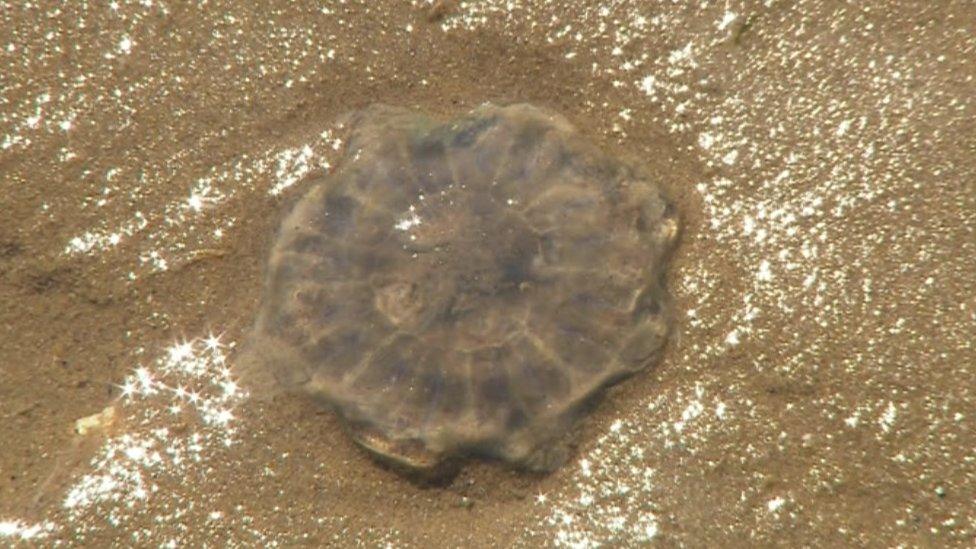
Jellyfish have no eyes but can sense light, they don't have a sense of smell, a brain or a skeleton, the Marine Biological Association said
Rinse the affected area with sea water (not fresh water)
Remove any spines from the skin using tweezers or the edge of a bank card
Soak the area in very warm water (as hot as can be tolerated) for at least 30 minutes - use hot flannels or towels if you cannot soak it
Take painkillers like paracetamol or ibuprofen
Source: NHS, external

Find BBC News: East of England on Facebook, external, Instagram, external and Twitter, external. If you have a story suggestion email eastofenglandnews@bbc.co.uk, external
- Published21 September 2020

- Published30 July 2016
